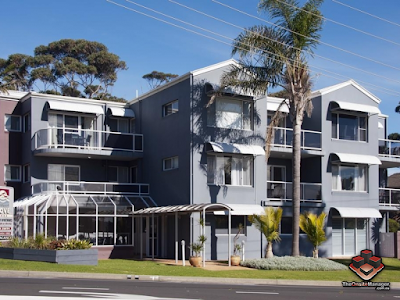The past year or so has seen an increasing number of contracts not proceeding to settlement. This is a worrying trend with not a common reason for it happening. We have seen finance issues, Bodies Corporate not assigning, valuations of residences, buyers getting cold feet, verification of figures coming up short and issues with some older agreements all contributing one way or another to the problem. There is a role to play for everyone involved to do their part in making these things happen from the accountant putting figures together for sale, the buyers being truthful about their financial circumstances, the vendors leaving cleaning figures in the P&L as an expense and allowing for a receptionist if it has a larger net profit (i.e. $280,000 plus) and the brokers qualifying buyers harder than they currently do and not pushing people into buildings they can’t afford or stretch themselves too far.
The days of husband & wife teams being expected to do 100 hours a week covering everything from maintenance of lawns and gardens, repairs to units, market the business, do all the office work and man reception in holiday buildings and then arrange and oversee trades people are gone. No one spends $1,000,000 plus dollars to do all that and then clean units as well so vendors who take out cleaning wages and receptionists are kidding themselves if they then blame the broker for not selling their business.
Similarly accountants who don’t advise their clients to leave those figures in as expenses are to blame as well and the brokers who don’t point it out to potential buyers run the risk of a contract falling over as the verifying accountant will pick it up and include it in his report.
Vendors should be wary of including items in their P&L that are one off items such as replacement of air conditioners and hot water services, painting of units and anything that is non recurring as somewhere around the $350 to $400 maintenance profit per unit per year in the letting pool is acceptable with accountants we believe but brokers should be asking their buyers “are you a handyman” if there is a high net profit on repairs and maintenance before they inspect as they waste everyone’s time if the buyer won’t pay for the R&M component. Valuations can be an issue so prepare your unit for sale, look at and say to yourself “would I buy this residence?” when a coat of paint and carpets cleaned could present it in a new light.
The banks are becoming increasingly difficult to deal with particularly on smaller property management rights and are looking for higher deposits, preferably cash, and longer agreements for interest only loans. The myth that the committee cannot refuse a new manager has also been put to the test recently and if they don’t think you can do the job they can refuse the assignment. They cannot discriminate but buyers should be aware that it is not a foregone conclusion and they should prepare proper resumes with personal and business references and a business plan to help secure the assignment. Nobody wants to spend thousands of dollars on verification, due diligence and finance approval to see the purchase fall over at the last hurdle, so brokers should make sure their buyers are informed and well prepared.
In this increasingly difficult environment management rights still stands out as a great, secure and profitable business but we all need to play our role in making it easier to buy, not harder, by being honest with vendors when listing so they know their role, qualifying buyers better so we don’t waste time on inspections that they can’t afford or don’t suit and making sure they use industry experts to ensure everything is covered.
Similarly accountants who don’t advise their clients to leave those figures in as expenses are to blame as well and the brokers who don’t point it out to potential buyers run the risk of a contract falling over as the verifying accountant will pick it up and include it in his report.
Vendors should be wary of including items in their P&L that are one off items such as replacement of air conditioners and hot water services, painting of units and anything that is non recurring as somewhere around the $350 to $400 maintenance profit per unit per year in the letting pool is acceptable with accountants we believe but brokers should be asking their buyers “are you a handyman” if there is a high net profit on repairs and maintenance before they inspect as they waste everyone’s time if the buyer won’t pay for the R&M component. Valuations can be an issue so prepare your unit for sale, look at and say to yourself “would I buy this residence?” when a coat of paint and carpets cleaned could present it in a new light.
The banks are becoming increasingly difficult to deal with particularly on smaller property management rights and are looking for higher deposits, preferably cash, and longer agreements for interest only loans. The myth that the committee cannot refuse a new manager has also been put to the test recently and if they don’t think you can do the job they can refuse the assignment. They cannot discriminate but buyers should be aware that it is not a foregone conclusion and they should prepare proper resumes with personal and business references and a business plan to help secure the assignment. Nobody wants to spend thousands of dollars on verification, due diligence and finance approval to see the purchase fall over at the last hurdle, so brokers should make sure their buyers are informed and well prepared.
In this increasingly difficult environment management rights still stands out as a great, secure and profitable business but we all need to play our role in making it easier to buy, not harder, by being honest with vendors when listing so they know their role, qualifying buyers better so we don’t waste time on inspections that they can’t afford or don’t suit and making sure they use industry experts to ensure everything is covered.








